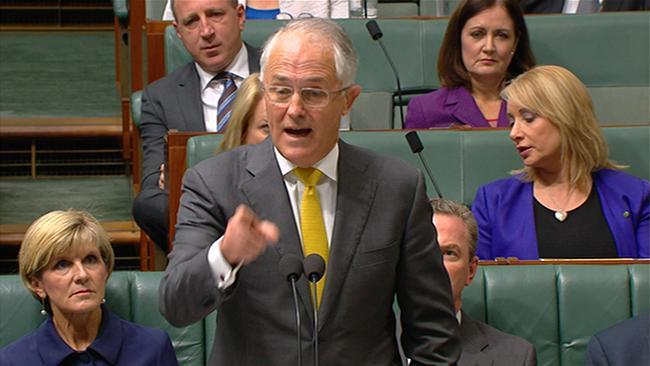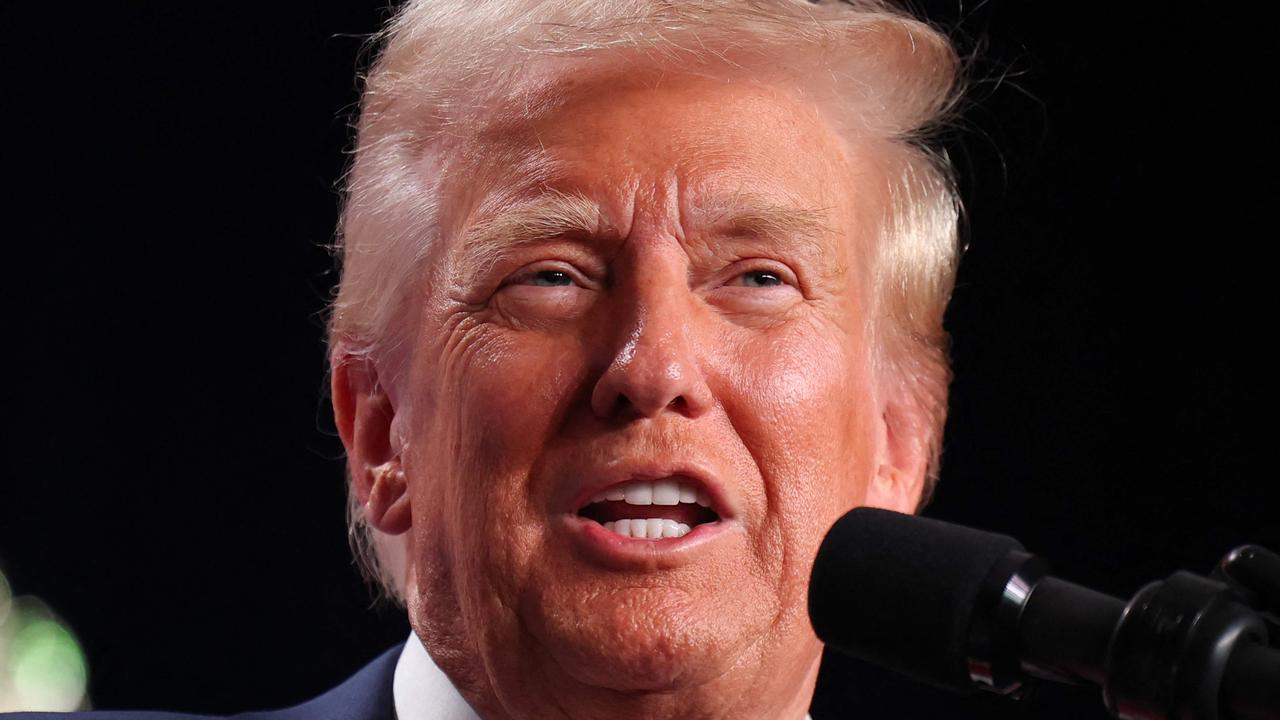Is it time to tax homeowner occupiers? This expert thinks so
AS POLITICIANS tinker with ways to make it easier for us to buy a house, one expert says their focus is all wrong — and he has come up with a controversial fix.

AS POLITICIANS tinker with ways to make home ownership easier for more Australians, one property expert says their focus is all wrong — and he has come up with a radical new plan.
Negative gearing is again under the spotlight with both sides of federal politics planning bold new changes to the practice, which has been accused of benefiting cashed-up investors and locking struggling first home buyers out of the property market.
Labor says it will limit negative gearing to new properties and halve the capital gains discount from 50 to 25 per cent, saving $7 billion each year in a decade and levelling the playing field for all buyers.
The Turnbull government has rubbished Labor’s proposal, however it says it is looking at reining in negative gearing “excesses” as part of its own tax reform package.
But University of Sydney Business School Professor Jamie Alcock said politicians were looking in the wrong places for a solution to Australia’s housing affordability woes.
He is proposing a game-changing model that would see home owner-occupiers taxed in exactly the same way as investors.
Yep, that’s right — according to his theory, the family home you live in will be on the radar of the taxman.

HOW IT WOULD WORK
Dr Alcock says the tax-free home ownership class attracts higher investment — as opposed to the other investment classes, which are heavily taxed — and that’s exactly why property prices and demand for homes are so high.
“The reason people are wanting to get their foot in the property market is because owner occupiers get a tax-free investment, and that’s what’s driving the big prices,” he told news.com.au.
“Anything that has the effect of increasing taxes on investors, or reducing a tax shield on expenses, which is the same thing, will have that effect.”
Dr Alcock said the current system of not taxing owner-occupied properties also moved investment away from the productive economy, because people were pouring money into properties they didn’t have to pay tax on.
“We have a universe of investments, most of which are heavily taxed, except for owner occupiers of residential housing. And if you think about yourself, if you have an investment universe where everything is taxed except one asset, where are you going to put your money?” he said.
“It’s no surprise that’s what people do. It removes money from the productive economy ... and drives house prices up.
“We’re one of the few countries that offer secure tenure with almost no taxes on properties; there are not many countries that do that.”
THE END OF INCOME TAX?
Dr Alcock admits his proposal would be “new and shocking” for Australia, where we have no heritage of taxing owner-occupiers as many other countries currently do.
He says any such proposal would need to offer protections for people on the lower rungs of the socio-economic ladder.
Crucially, he also suggests any home owner-occupier tax is coupled with cuts to income taxes.
His logic is that income tax targets aspiration, not wealth — but property tax hits wealth directly.
“There is a myriad of transition strategies that (government) could explore, but reducing income taxes — or eliminating income taxes, even — would be one of the best approaches for doing that,” he said of his proposal.
“Also, it’s very easy for people to hide income tax, especially if they’re involved in illicit activities. But you can’t shift property. You can’t move it; it’s very, very hard to avoid. The drug dealer living on a mansion on the harbour will have to pay their fair share of tax.
“It also means that we don’t tax someone who’s 30 with three kids and a dependent spouse and a million-dollar mortgage and tax them on their income, and yet someone who’s retired and living in a harbourside home pays nothing because they’re retired but they’re multi-millionaires.
“It taxes wealth as opposed to as aspiration, which is another equity issue.”
STIMULATING THE ECONOMY
In the United States, homeowners pay an annual tax of about 2 per cent of the market value of their property, Dr Alcock says. A home mortgage interest tax deduction assists compatible first home buyers who don’t have as much equity.
It’s a model Dr Alcock said had lead to more investment in the American productive economy, which stimulated the country’s gross domestic product (GDP) growth.
“The OECD (Organisation for Economic Co-operation and Development) a few years ago did an empirical study on the types of taxes that lead to greater GDP growth and they found that property taxes were the best and income taxes were the worst,” he said.
“So, property tax has the lowest adverse effect on growth, while income tax had the worse adverse effect on growth.”
While he realises his radical approach is unlikely to be adopted by even the bravest of politicians, Dr Alcock is calling for it to be considered it as part of wider reforms to help more of us realise the great Australian dream of owning a home.
“I think (under the proposed system) we’d see house prices as a multiple of earnings would drop. There is absolutely no doubt about that,” he said.
“And that’s one of the dimensions that would need to be managed carefully, because people don’t want to see their investments drop. There’s also the fact that our banks are heavily exposed in residential housing so we will want to avoid a banking crisis.
“The transition would need to be carefully handled because it’s incredibly complex, but the long term outcome would be that the average individual would be paying far less for the land that they use and there’d be an incentive to invest more money in the productive economy, and therefore, increase growth and increase wealth for all of us.”
IS THAT REALLY NECESSARY?
While Dr Alcock proposes a total overhaul of the way we tax homeowners, a new independent study suggests Labor’s plan to tweak negative gearing could alone deliver a massive boost to the economy.
Independent modelling by Australian National University’s Centre for Social Research and Methods, released on the weekend, found quarantining negative gearing to newly built properties — which Labor plans to do — could increase taxation revenue in the long run between $3.4 and $3.9 billion dollars a year.
It would also boost construction and slow the pace at which house prices are rising, the report said.
And while limits to negative gearing could make rental investment less attractive, and lead to a decline in rental stocks, the report said this could be offset by those same properties becoming owner-occupied homes instead — thus reducing demand for rental properties in the first place.
ANU’s modelling also found negative gearing benefited wealthier families, with 52.6 per cent of the benefit going to the top 20 per cent of incomes. A tiny 5.2 per cent of benefits went to the bottom 20 per cent of incomes.
“This result is mostly driven by high income families being more likely to negatively gear, having larger negatively geared deductions and a progressive tax system that magnifies the gains for higher income persons,” the report said.
The modelling also found Labor’s proposal to slash the capital gains discount from 50 per cent to 25 per cent would increase tax revenue by about $2 billion in the long run. That would mostly come from the top 10 per cent of earners who negatively gear their properties.
‘STOP PLAYING WITH NEGATIVE GEARING’
As theories continue to abound about the best ways to address the housing crisis and boost economic growth, Property Council of Australia chief executive Ken Morrison has warned against “playing around” with major tax changes for a part of the economy he says is already providing economic growth and jobs.
The Property Council of Australia launched a multimedia advertising campaign on Monday imploring both sides of politics to leave negative gearing alone.
Mr Morrison said close to two million Australians owned an investment property and almost 1.2 million of those negative geared, and the industry was vital to the national economy and GDP.
“Sudden lurches in policy are risky to an industry that is contributing so much to jobs and growth,” he said.
“Negative gearing is a vital part of the means by which Australians, from all walks of life, secure their financial future.
“Our message to both sides of politics is: don’t play with negative gearing.”
Mr Morrison said tax was “always an area of legitimate debate” but fiddling with the current system was risky.
“We would be negligent as the advocates of the industry not to say so,” he said.




